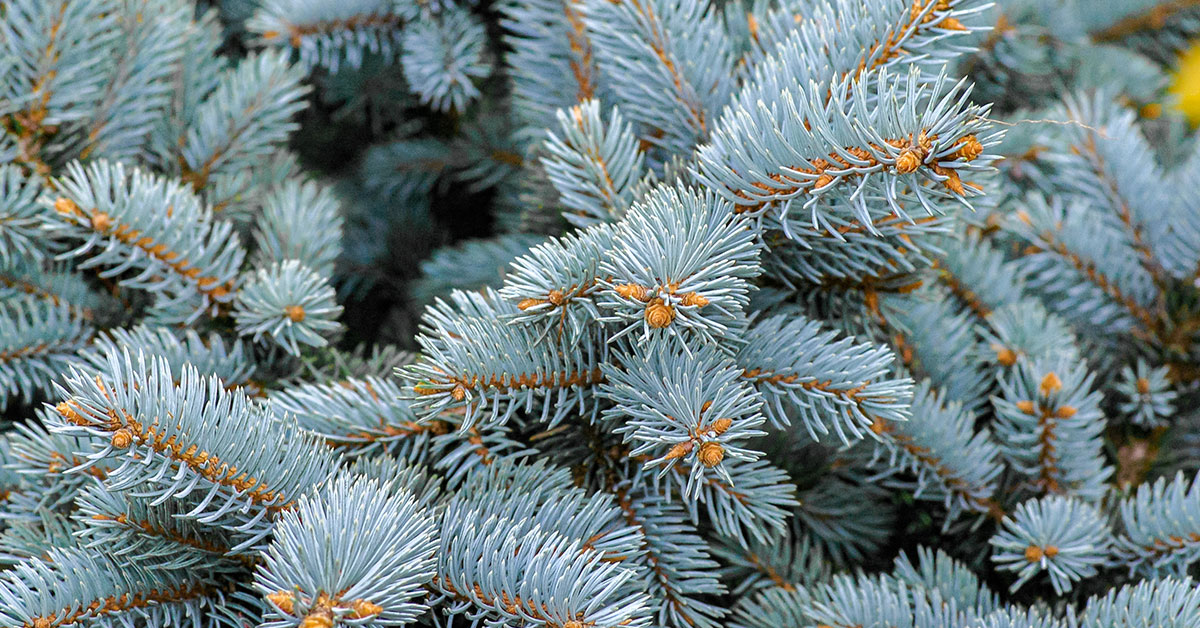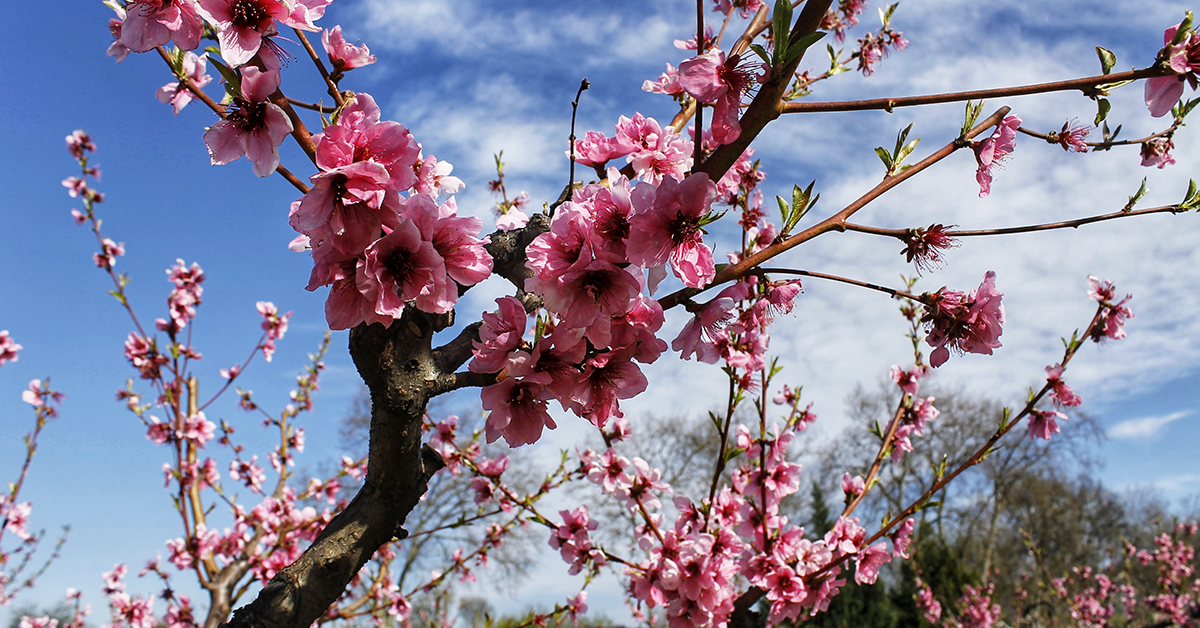Evergreen trees are vital to the landscape, providing year-round color and texture to a garden. Shade-tolerant evergreens can provide beauty, structure, and privacy in even the most difficult of locations. However, with a wide variety, it can be difficult to decide which evergreen tree is best for your garden. We will discuss a variety of evergreen trees that grow in shade, their characteristics, and their benefits. Although there are a lot more evergreen trees listed here in the world, these ten are some of our favorites.
Evergreen trees that tolerate shade
Below is our list of 10 evergreen trees that can tolerate some shade. It’s important to note that these trees, by and large, do still require about 4-6 hours of sunlight per day in order to thrive. But if you have a little shade in your yard, they won’t mind!
Blue Spruce
The Blue Spruce is an evergreen tree that can thrive in areas that get light to moderate shade. Making it one of the best evergreen trees that grow in shade. It has a dense, pyramidal shape that makes it a great choice for use as a privacy screen or windbreak. The Blue Spruce’s needles are a beautiful silvery-blue color that can brighten up any landscape. Its needles are also soft to the touch, making them perfect for use as a natural ground cover. Additionally, it is native to North America and is found in USDA growing zones 1 through 7. If you’re looking for an evergreen tree that can thrive in partial shade, the Blue Spruce is a great choice.
Douglas Fir
Douglas Fir evergreen trees are a popular choice for shady areas in the landscape. They are fast-growing, long-lived trees that can reach heights of up to 250 feet and can live for over 500 years. Growing in USDA zones 5-6. The trees have a conical shape with soft, fragrant needles that are deep green in color. Furthermore, they are tolerant of a wide range of soil types and can even thrive in wetter, shadier areas. The trees are known for their hardiness, resistance to drought and pests, and their ability to act as windbreaks. Douglas fir evergreen trees are a great choice for landscaping and provide a beautiful backdrop to any garden.
Japanese Yew
The Japanese yew evergreen tree is a popular choice for gardeners looking for an attractive and versatile tree to add to their landscape. Growing in hardiness zones 4-7. This tree is native to Japan and is known for its ability to thrive in the shade, making it a great choice for gardens with limited sunlight. Its dense evergreen foliage provides year-round structure and color to the garden. Additionally, its bright red berries provide a splash of winter color. The Japanese yew is a low-maintenance tree, requiring little pruning or fertilizing, and it is also highly resistant to pests and diseases. With its lush green foliage and bright berries, the Japanese yew is an ideal choice for adding beauty and structure to any garden.
American Arborvitae
American arborvitae evergreen trees are a popular choice for creating a year-round privacy screen in a garden or backyard. Growing in hardiness zones 3-8. Their dense, columnar growth provides an ideal backdrop for other plants and landscaping elements. They are also very tolerant of both sun and shade, making them a great option for areas that don’t get a lot of direct sunlight. With their lush foliage, American arborvitae evergreens make a great addition to any garden, adding a touch of greenery and a hint of privacy. Additionally, they’re low maintenance and require minimal upkeep, making them a great choice for busy homeowners.
Keep Reading: When And How To Fertilize Arborvitae
Common Holly
Holly trees are a type of evergreen tree that can grow in both sun and shade. Growing in hardiness zones 5-9. These trees are popular for their glossy, waxy leaves and bright red berries that add a festive touch to the winter landscape. Common holly trees are often used as a hedge or screen to provide privacy and are great for wildlife habitat. They are drought tolerant and can tolerate a wide range of soils, and can even thrive in the shade. Holly trees have a moderate growth rate and can reach heights of up to 40 feet, though they can also be kept trimmed in a smaller size. With their attractive foliage and bright berries, holly trees are a great addition to any landscape.
Canada Hemlock
Canada Hemlock trees are an evergreen species native to the northern parts of North America and Canada. Growing in hardiness zones 3-7. They are an excellent choice for providing shade in the garden as they can grow up to 20 meters tall. They prefer cool, moist, and slightly acidic soils and can tolerate some sun but do best in the shade. The needles are light green in color and the bark is reddish brown. The Canada Hemlock tree is an excellent choice for providing privacy and wind protection in the garden. It is also a popular choice for erosion control as the roots are known to be deep and strong.
Leyland Cypress
The Leyland Cypress is an evergreen tree that is widely used for landscaping purposes. It is native to the southeastern United States and is known for its hardiness and fast-growing nature. Growing in hardiness zones 6-10. It can grow in both full sun and partial shade and is often used as a privacy screen or hedge. The Leyland Cypress is an excellent choice for those looking for a low-maintenance evergreen tree that will provide year-round shade and beauty. It is drought-tolerant and can even tolerate periodic flooding. These trees can grow up to 40 feet tall and provide a dense canopy of foliage that is perfect for screening out unwanted noise and views. The Leyland Cypress is a great choice for those looking for an attractive and low-maintenance evergreen tree in the shade.
Eastern White Pine
Eastern White Pine evergreen trees are known for their stately shape and ability to thrive in the shade. These trees can reach up to 80 feet tall and have soft, feathery needles with a blue-green hue. Growing in hardiness zones 3-8. The bark is thin, scaly, and silver-gray in color. Eastern White Pine trees are a great addition to any landscape, as they can provide year-round beauty and privacy, while also providing habitat and food for wildlife. The trees are also quite versatile, as they can thrive in both full sun and partial shade, making them an ideal choice for yards that have limited sunlight.
Thuja
Thuja evergreen trees are a great choice for shady areas of the landscape. They come in a variety of shapes and sizes, with some growing up to 50 feet tall. Growing in hardiness zones 5-9. Thuja trees are well-known for their dense foliage and attractive, vibrant green color. They are also quite hardy and can withstand cold temperatures and drought. The trees also provide excellent privacy and windbreaks, making them ideal for gardens, yards, and other outdoor spaces. Thuja evergreen trees are relatively low maintenance and are not prone to disease or insect infestation. With proper care, these trees can thrive in the shade for many years.
Southern Magnolia
Southern Magnolias are evergreen trees that grow in the shade. These trees are native to the southern United States and are a popular choice for landscaping. Growing in hardiness zones 7-10. Magnolia trees are highly attractive, with glossy green leaves, fragrant white blossoms, and attractive bark. They can grow up to 80 feet tall, and are very hardy, withstanding drought and high temperatures. The trees are also low maintenance, requiring minimal pruning or fertilization. Southern Magnolias are an excellent choice for adding beauty and shade to any landscape and can be enjoyed for years to come.


